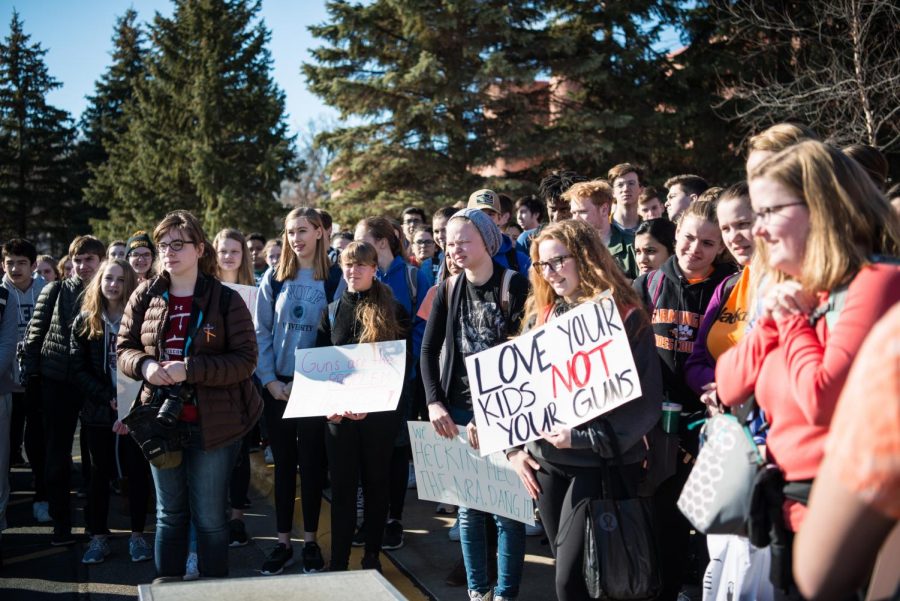The recent walkout raises questions about the freedom of speech rights students have while in school.
What Freedom of Speech Rights do Students Have in School?
In 1969, the Supreme Court case Tinker v. Des Moines Independent Community School District set a precedent that is frequently used today. It was the first of many cases to define the constitutional rights of students in relation to free speech in public schools.
In light of the recent school shooting in Parkland, Florida, students at EHS participated in a 17-minute nationwide walkout to support gun control laws. The walkout was one of several student-led protests in which students exercised their First Amendment rights. It also raised questions about the extent of students’ rights to free expression in school.
EHS principal Dr. Polly Reikowski says freedom of speech is a balancing act. She explains, “You have a right not to be persecuted and you have a right not to be demeaned. So I have freedom of speech but I also have to be aware of the rights of others.”
The First Amendment protects students in schools, just as it covers citizens in the community. The Supreme Court has identified three major relevant considerations to determine the reasonableness of the speech in schools: the disruption the speech will bring, whether the speech is offensive, and if the speech would be contrary to the educational mission of the school.
Both teachers and students have constitutional rights in school and are responsible for what they say. Students, however, cannot do things that would disrupt the school environment. The subject of disruption is the core issue addressed by courts in student free speech cases.
“You can’t just stand up in the middle of class and scream and shout and not let people learn,” Reikowski added. “Teachers are within their rights at that point to ask them to leave or settle down.”
The Rights and Responsibilities handbook, which is sent to all homes in District 196, lays out the rights students are guaranteed. It also outlines the rights we do not have and the punishments for violating these regulations.
“For instance, as a principal, I have to make sure that, in my building, I’m not bringing in people and making you [students] listen to them if they are preaching certain politics or preaching certain religions or sexual beliefs,” Reikowski said. “I have to be careful about who I bring in and make sure you know you have the right to opt out because you do,” she adds.
With more school safety protests to come, it is not likely the discussion of students’ rights to free expression will be over anytime soon.
